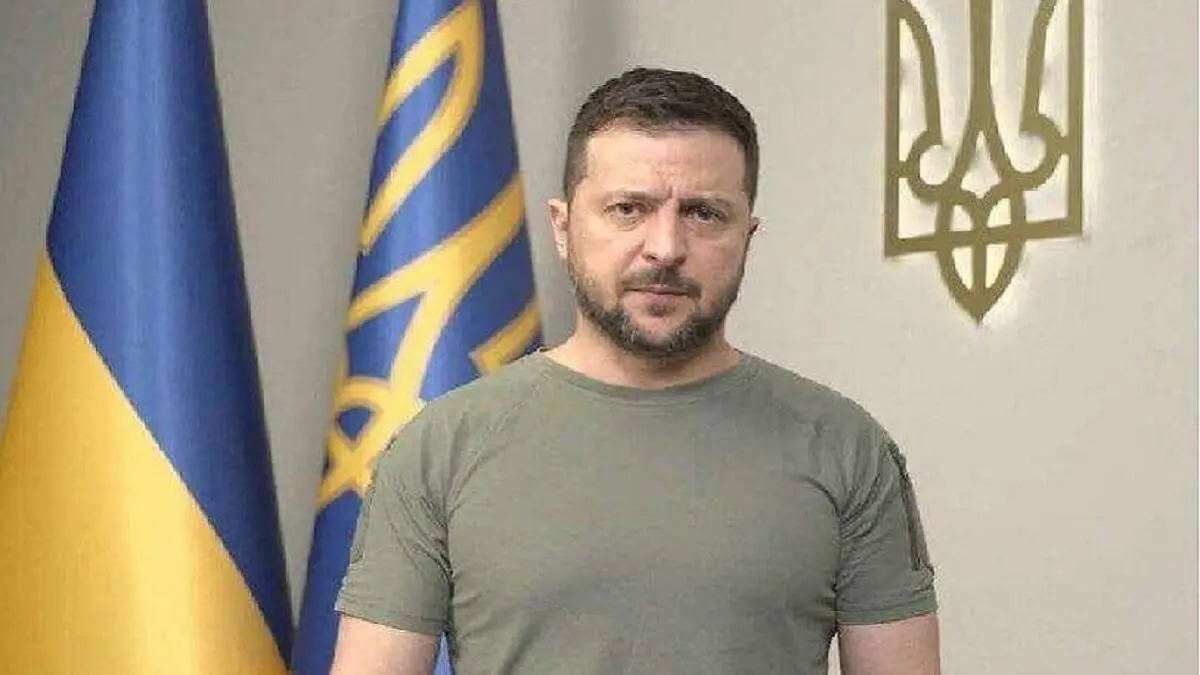Zelenski meets Turkish president on tour to put pressure on NATO

Ukrainian President Volodymyr Zelensky meets his Turkish counterpart Recep Tayyip Erdogan on Friday in the latest leg of a diplomatic tour to press for his country's accession to NATO and the delivery of more arms from its allies.
"Without long-range weapons, it is not only difficult to carry out offensive missions, but also, to be honest, defensive operations," Zelenski said Friday from the Czech Republic, before heading to Turkey.
"We are talking to the United States, for now it's up to them," he added.
Czech Prime Minister Petr Fiala said he would send combat helicopters to Ukraine and train US-made F-16 fighter pilots.

The meeting with Erdogan in Istanbul comes on the eve of the 500th day since the Russian invasion began and amid a counter-offensive by Kiev troops that Zelenski himself acknowledged is making slow progress.
"However, we are advancing, not retreating like the Russians," he said. "We now have the initiative," he added.
The discussion with the Turkish president, an important mediator between Kiev and Moscow in the conflict, should focus on the expiring deal for Ukrainian grain exports across the Black Sea and next week's NATO summit.
Analysts expect Zelenski to try to convince Erdogan to give the necessary green light for Sweden's NATO membership before the 11-12 July meeting in the Lithuanian capital Vilnius.
Turkey is blocking Sweden's candidacy because of a long-standing dispute with Stockholm over what Ankara says is the Scandinavian country's overly lax attitude towards Kurdish militants in the country.
Cluster bombs
Zelenski is primarily seeking NATO membership and wants the Lithuanian summit to lead to an "invitation" to Kiev to join the group.
The two leaders will also try to find a way to extend a Turkish and UN-mediated deal that has allowed Ukrainian grain exports during the war and which, unless Moscow agrees to renew it, expires on 17 July.
On Thursday, Zelenski travelled to Bulgaria and later to the Czech Republic, from where he called for "honesty" from NATO and "courage" from its allies, from whom he is demanding more military support.

According to the Ukrainian leader, the slow supply of arms has delayed his counter-offensive and given Russia time to reinforce its defences in the occupied areas.
In Washington, US media reported that the Pentagon was preparing a new weapons and ammunition package that could include the controversial cluster bombs, which consist of small explosives spread over a wide radius.
Ukrainian Defence Minister Oleksiy Reznikov tweeted that he had spoken with his US counterpart about "new projects related to the supply of various types of ammunition".
These bombs have already been used by both sides, despite human rights organisations condemning their use and claiming that unexploded devices may remain unexploded and threaten civilians.
Mystery surrounding Prigozhin
The Kremlin warned that it would follow the meeting between Zelensky and Erdogan "closely" and would maintain "constructive cooperation with Ankara", according to its spokesman, Dmitry Peskov.
But all attention in Moscow is focused on the mystery of the whereabouts of Yevgeny Prigozhin, Wagner's boss who rebelled against the military command at the end of June.
Although the Kremlin had agreed that the leader of the paramilitary group would go to Belarus, the Belarusian president and mediator of the pact that ended the rebellion, Alexander Lukashenko, assured that he was not there, but in St. Petersburg.

Peskov, when asked about Prigozhin's whereabouts, replied: "We are not following his movements.
On the ground, Russian troops on Thursday launched a missile attack on the western city of Lviv, hundreds of kilometres from the front line, killing nine people and wounding 42 others, according to a Ukrainian Interior Ministry statement on Friday.
The Russian army said it targeted places of "temporary deployment" of Ukrainian soldiers. "All designated facilities were affected," the defence ministry said.








